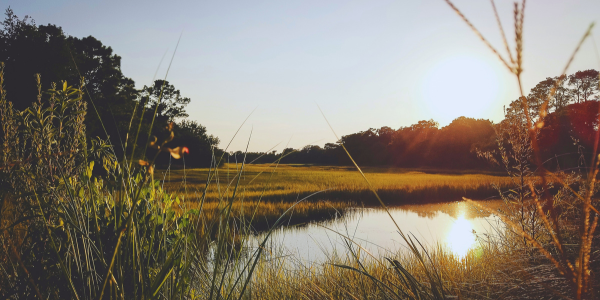
By Dr. Ruth Edwards, Director of Education
October 8, 2024
While clearing out my home office recently, I came across essays, poems, and pamphlet books I’d written or contributed to over the years. They came to life in various places that I’d lived: Charleston, South Carolina, Carbondale, Illinois, St. Louis, Missouri, and here in Central Florida. All are things I’ve penned over the years without owning that I am a writer. Thinking or speaking the word “writer” in relation to myself is a new assertion for me. It’s an identity I’m only now beginning to fully step into. My circle of friends, especially my sisters, would contest this “identity failure.” They’ve witnessed me writing and speaking all my adult life. When I returned to school in 2003 to pursue my Doctor of Philosophy degree, I knew this would require lots of writing. My compartmentalized approach to this allowed me to view a writing assignment different from my writing-in-the-moment. Yeah, don’t attempt to reason that out.
The only published pieces were poems I’d written for a Women’s Connection pamphlet at my church in St. Louis. My research chair was the first to tell me, “you have a way of telling a story that draws the reader in.” In that moment, I received his affirmation. Mainly, it gave me the courage to believe I could write viable research that people would want to read. Up until that moment, my nonacademic writing was just something I did when the feeling struck me. Years ago, while living in Missouri, a friend introduced me to the term “G.R.I.T.S.” She had to write it out for me because both of us being Southern girls (her Alabama, me South Carolina), I was acquainted with this other name for hominy. She explained that her reference was about our origins in the South, not about the food staple. She was identifying us as Girls Raised In The South…aka, GRITS. I appreciated this new expression, and we laughed about our new-to-me, identified state.
While in graduate school, that phrase returned to me. I had decided to investigate Black women, specifically our socialization. I am a #CarolinaGirl4Life, specifically South Carolina (these are two different states!). As mentioned earlier, I’ve also lived in the Midwest and further South. My Black female colleagues and acquaintances in Carbondale hailed from California, Oregon, Louisiana, Missouri, Michigan, and Iowa. In each locale, in any interaction, we could finish each other’s sentences whether the other woman was a GRITS or not In a room of total strangers, I make eye contact with a Black woman, and we immediately have a connection. I don’t have this experience with other women of color. I wanted to know “how we got like this.” My committee chair understood what I wanted to study. He gracefully said, “You must call the study something else, your title needs to sound more academic.” I agreed. I kept the phrase back-of-mind because it stated, quite simply, what my intention was with the research. As I conducted my review of the literature, I discovered that there was nothing about Black Women’s socialization in the human development canons. I became frustrated and consulted with my human development professor. This gentle Latino (his term) listened to my frustrated rant. When I finished, he said, “You need to look in the feminist literature. That is where you will find writings and scholarship by and about Black Women.”
I searched, researched, and read everything I could find about Black women. What I learned is that everything written about the social group “women” is based on White women. The scholarly community had decided that white women’s experiences reflected ALL women’s experiences, regardless of enculturation. The human development research into socialization and development for Black people focused solely on Black men. The assumption here was that everything about Black men applied to Black women because of race. As I read these experiences and life learnings, I realized that none of those findings applied to me or any Black woman I knew whether family, personal or social. At the very beginning of my research journey, I had idealistically gone looking for Maya, Nikki, and Zora. As I narrowed the research focus to our socialization and development, I discovered Patricia Hill Collins and Kesho Yvonne Scott, and rediscovered Paula Giddings. Nine co-researchers participated in the study, all Black women living in Florida and originating from the Midwest, Northeast and South. All of us were looking to answer the question “how did we [Black women] get like this?”. Additionally, about forty Black female writers and scholars fed into my research.
As guided by my research chair, the title of my study was called Becoming a Black Woman: A Theory of Internalized Collective Consciousness. This investigation resulted in a new contribution to the field of Human Development. On Sunday, October13, I will be in dialogue with historian, poet, and author, Ms. Valada Flewellyn. We’ll explore my journey into this research and how my co-researchers and I came to answer that intriguing question. We hope you’ll come along with us.